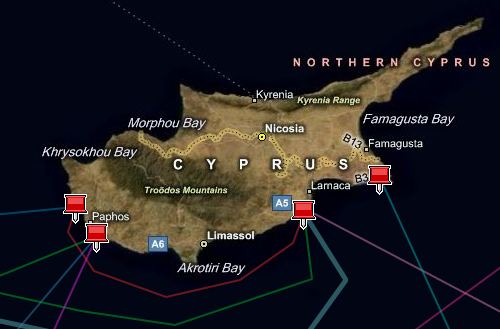Web Worker Daily links to the article titled “AT&T: Internet to hit full capacity by 2010“. Here is a summary:
Speaking at a Westminster eForum on Web 2.0 this week in London, Jim Cicconi, vice president of legislative affairs for AT&T, warned that the current systems that constitute the Internet will not be able to cope with the increasing amounts of video and user-generated content being uploaded.
Well, thank you for pointing out the obvious, Mr. Jim. The current systems that constitute the Internet will not be able to cope indeed. That’s why they will be upgraded, updated, redesigned, and multiplied to cope with the increasing amounts of video and user-generated content. That’s how it was before and that’s how it will be in the future.
There is this nice concept that I’ve learned about back in the college days. I don’t remember how it’s called, but it is very related to three terms: “supply”, “demand”, and “equilibrium”. I’m sure that current economics aren’t as simple, and that there are many better concepts to explain things, but I liked the simplicity of it. I am also a big believer in the ultimate power – natural balance. Things can be pulled a little bit left and right, and that’s possible, but in the long term, everything will balance out.
Looking through that prism on the problem of ever increasing Internet traffic, that seems to be like a lot of demand. If big companies, such as AT&T won’t be able to supply enough, it doesn’t mean that the Earth will stop revolving and wait for them to catch up. This has been proved before and will be proved again, if needed. If it will come to the worst, ISPs can be decentralized by self-managing network units (individual or small networks) that interconnect with each other. That’s actually what happens in areas which are not covered by major Internet Service Providers. People install their own wireless networks, connect to each other, and between those who can connect them further. If there will be too much demand for solutions like this, they can be rather easily automated with hardware units and simple software packages.
As to the claims of how fast the traffic will rise, I don’t quite agree. It will continue to rise at dramatic rates, but not as dramatic as:
“In three years’ time, 20 typical households will generate more traffic than the entire Internet today.”
That’s just insane.
Cicconi added that more demand for high-definition video will put an increasing strain on the Internet infrastructure. “Eight hours of video is loaded onto YouTube every minute. Everything will become HD very soon, and HD is 7 to 10 times more bandwidth-hungry than typical video today. Video will be 80 percent of all traffic by 2010, up from 30 percent today,” he said.
HD is a promising technology, and it has its niche, but saying that everything is will go HD very soon, well… It reminds me of all those claims about radio disappearing when TV came along, and TV disappearing when Internet appeared. HD will be pretty popular, but there are many areas where it is not applicable. For example, it will take a long time before mobile phones will learn how to create HD content.
And not to forget the money issue, people are prepared to pay today than they used to before. And they are paying more. Think about it. Ten years ago not a lot of people had a dial-up account. Which was a really crappy way to connect to the Internet. And it was priced at about $20 USD a month. Today I pay about $60 USD a month to my ISP, which brings me Internet, television, and telephony through a single cable. And guess what – I am prepared to pay more. And guess what – I am by far not alone. I know more people today who pay $60 USD for their Internet connectivity than I knew before paying for their dial-up connection.
The Internet is changing. If before it was mostly good for checking email and reading an occasional web site, today it is a powerful tool that solve a whole range of communication and entertainment problems. Make it better and we’ll pay more.
Oh, and you’ll get paid from the other side too – web services, and the rest of the crowd who make a lot of money on the Internet. 10 years ago a service such as Flickr would be possible. Or it would have been rather useless. Today I now more people paying for a Pro account to Flickr than I knew before paying for their dial-up connection. How’s that? I’m sure Flickr is ready to pay more for better connectivity.
So, Mr. Jim, stop whining. It’s not the end of the world. It doesn’t even look like it. Quite the opposite. It’s the golden time for the people who work in technology. Let’s get back to work and make the world a better place.
